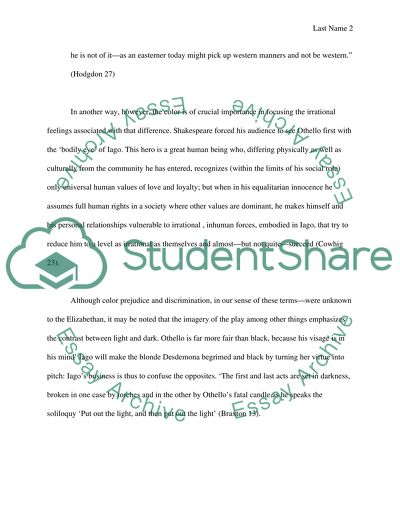Cite this document
(“Shakespeares Othello Research Paper Example | Topics and Well Written Essays - 1750 words”, n.d.)
Retrieved from https://studentshare.org/literature/1420896-shakespeares-othello
Retrieved from https://studentshare.org/literature/1420896-shakespeares-othello
(Shakespeares Othello Research Paper Example | Topics and Well Written Essays - 1750 Words)
https://studentshare.org/literature/1420896-shakespeares-othello.
https://studentshare.org/literature/1420896-shakespeares-othello.
“Shakespeares Othello Research Paper Example | Topics and Well Written Essays - 1750 Words”, n.d. https://studentshare.org/literature/1420896-shakespeares-othello.


